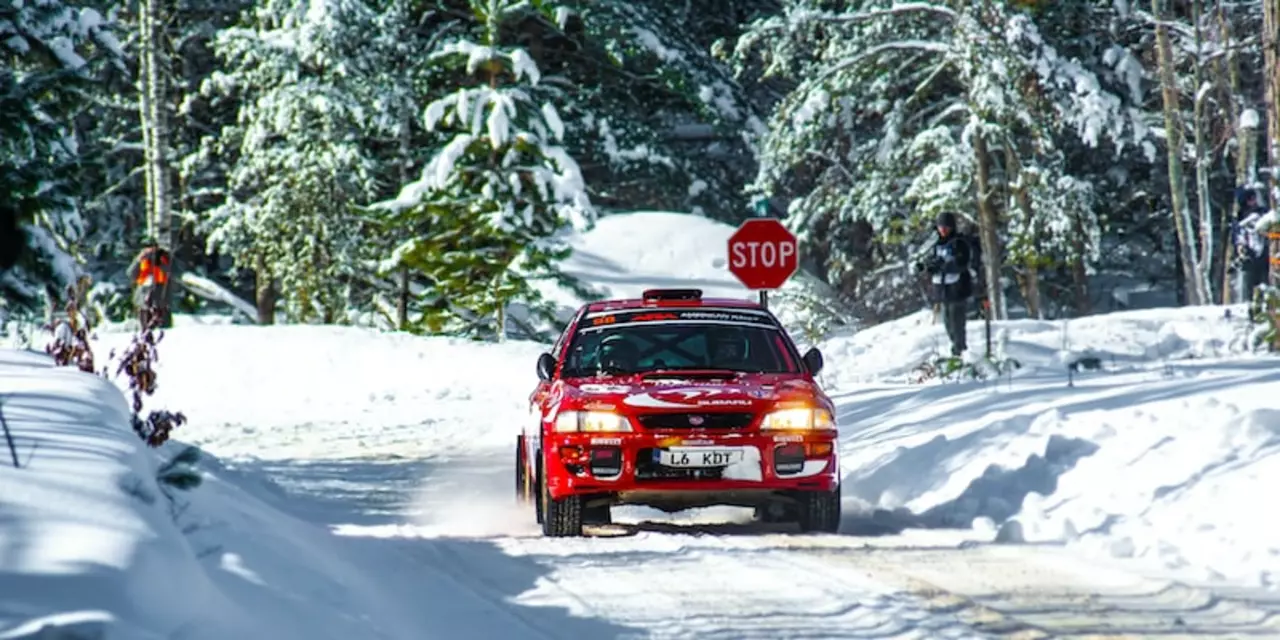How fast do rally cars go in MPH?

1 Feb
The Thrill of Rally Racing: How Fast Can Rally Cars Go?
Rally cars are some of the most thrilling vehicles to drive, and they’re capable of reaching some of the highest speeds in the world. But how fast do rally cars actually go in miles per hour (MPH)?The answer to this question really depends on the type of rally car and the type of race. Rally cars typically range from 150 to 200 MPH, and some have been known to reach up to 250 MPH. In most cases, the fastest rally cars are either modified production vehicles or purpose-built racing cars.
The fastest rally cars are typically used in special events like the World Rally Championship (WRC). WRC events take place on closed roads and feature a mix of gravel and tarmac surfaces. Drivers in these events must be able to handle high speeds and tight corners, so the cars are usually highly modified for the purpose. WRC cars can reach speeds of up to 200 MPH, and some drivers have been known to reach speeds of up to 240 MPH.
In addition to the WRC, there are also other series of rally racing, such as the Rally America National Championship and the European Rally Championship. These events feature shorter stages and less powerful cars, so the speeds are usually lower than those seen in the WRC. The Rally America National Championship cars typically reach speeds of up to 150 MPH, while the European Rally Championship cars can reach up to 180 MPH.
No matter what type of rally car you’re driving, you’re sure to experience an adrenaline rush as you race through the winding roads of a rally course. Whether you’re aiming for a podium finish or just out for a thrilling ride, you can be sure that you’ll be going as fast as your car will take you. So, the answer to the question “How fast do rally cars go in MPH?” is: it depends on the type of rally car and the type of race.
Understanding the Speed of Rally Cars: An Overview of MPH
Rally cars are some of the most impressive racing machines on the planet. They are designed for speed, maneuverability, and precision on some of the toughest and most unpredictable terrain. One of the most common questions related to rally cars is how fast do they actually go?The answer to this question is that it depends on the type of rally car, the terrain, and the driver. Generally, rally cars can reach speeds of up to 200 miles per hour (MPH). However, this is not the norm, and most rally cars will typically reach speeds of around 120-150 MPH on a rally course.
When it comes to the terrain, rally cars are designed to handle off-road conditions, and as such, the speeds they can reach will be affected by the terrain. On a flat, dry surface, rally cars can reach higher speeds, while on a more challenging course with obstacles and turns, they will be limited to lower speeds.
In addition, the driver has a lot to do with how fast a rally car can go. Drivers must be very skilled and experienced to handle a rally car at high speed, and their driving style will also affect the speed of the car.
Overall, the speed of rally cars varies depending on the type of car, the terrain, and the driver. However, most rally cars can reach speeds of up to 200 MPH on a flat, dry surface, with some drivers pushing the limits and reaching even higher speeds.
Uncovering the Speed Potential of Rally Cars: How Fast Can They Go?
Rally cars are some of the most exciting vehicles to watch in action—and for good reason. With their powerful engines and ability to handle rough terrain, rally cars can reach speeds that other cars simply can't. But just how fast do rally cars go?The speed of a rally car is largely determined by the type of car and the driver's skill level. Professional rally drivers have achieved speeds of up to 120 MPH on tarmac roads and up to 90 MPH on dirt roads. However, these speeds are only achievable with a well-tuned car and an experienced driver. For the average driver, speeds of around 70 MPH on tarmac and 50 MPH on dirt roads are more realistic.
But while the speeds of rally cars can be impressive, they are still limited by the laws of physics. The most powerful rally cars have engines that produce up to 600 horsepower, but this power is still subject to the laws of aerodynamics. As cars reach higher speeds, they become increasingly more difficult to control, and this can mean the difference between safely navigating a corner and driving off the road.
The speed potential of rally cars is also limited by the type of terrain that they are racing on. Rally cars are designed to handle rough terrain, but even the most powerful cars can struggle on mud, sand, or snow. These surfaces require more traction, which means that cars need to slow down in order to keep control. In addition, rally cars are often required to drive over jumps and bumps, which can reduce their speed even further.
Overall, the speed of a rally car is determined by a variety of factors, including the type of car, the driver's skill level, and the terrain. On tarmac roads, rally cars can reach speeds of up to 120 MPH, while on dirt roads, speeds of up to 90 MPH are achievable. However, these speeds require a well-tuned car and an experienced driver. The average driver is likely to reach speeds of around 70 MPH on tarmac and 50 MPH on dirt roads.
Exploring the Fastest Rally Cars: How Fast Can They Reach in MPH?
When it comes to rally cars, speed is undoubtedly one of the most important factors. With their powerful engines, these cars can reach incredibly high speeds, making them thrilling to watch and drive. But just how fast can rally cars reach in miles per hour (MPH)?The answer to this question depends largely on the engine and type of rally car being used. Generally speaking, the fastest rally cars can reach speeds up to 200 MPH. However, this is not the norm. Most rally cars have a top speed of around 140 MPH. This is still more than fast enough to make them exciting to drive, and can easily be achieved on a track.
It is important to note that the top speed of a rally car is affected by its weight, aerodynamics, and the skill of the driver. All of these factors play a role in how fast a car can reach in MPH. Additionally, the type of terrain being raced on can also affect the top speed of a rally car. For instance, if a car is racing on a track that is winding and hilly, it is likely to reach a lower top speed than if it was racing on a flat track.
In conclusion, while the top speed of a rally car can vary depending on a variety of factors, the fastest cars can reach speeds of up to 200 MPH. That being said, most rally cars have a top speed of around 140 MPH, which is still fast enough to make them thrilling to drive.
The Ultimate Guide to Rally Racing: How Fast Can Rally Cars Go in MPH?
Rally racing is a thrilling and exciting sport that has been around for centuries. While it may not be as well-known as NASCAR or Formula One, rally racing is just as exciting and requires a great deal of skill to master. At its core, rally racing is a timed race where drivers take their cars through a series of turns and obstacles on a closed course. The ultimate goal is to finish the course in the shortest amount of time possible.When it comes to the speed of rally cars, the answer is not so straightforward. It depends on the type of car, the course, the terrain, and the driver’s ability. Generally speaking, rally cars tend to have higher top speeds than standard cars, and they can reach up to 150 mph or even higher in some cases. However, the average speed of a rally car during a race is usually somewhere between 40 and 70 mph. This range depends on the particular course, the car's make and model, and the driver's skill.
In some cases, rally cars can even reach higher speeds than those seen in Formula One races. This is due to the nature of the courses, which are often faster and more open than a Formula One track. Additionally, rally cars are specifically designed to handle the unique challenges of racing on dirt, gravel, and other terrains. This allows them to be more agile and able to reach higher speeds without sacrificing control.
At the end of the day, the speed of a rally car depends on a variety of factors. While it is possible for a car to reach speeds of over 150 mph, the average speed on a course is typically somewhere between 40 and 70 mph. It all comes down to the car, the course, and the driver’s skill and experience.
